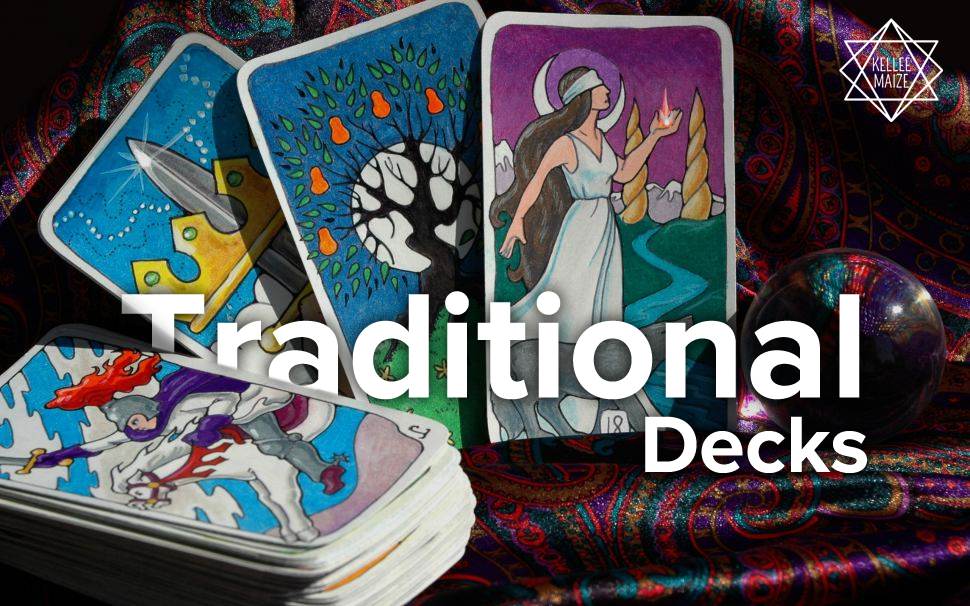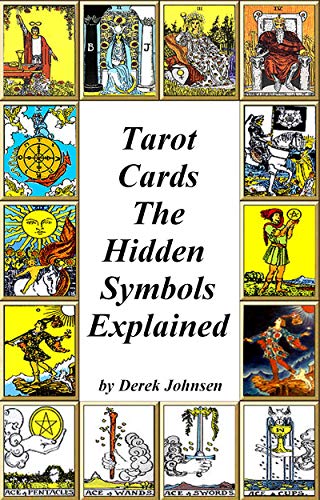
Tarot card numbers are an essential part of a reading. They provide precision and detail for your readings. Different Tarot decks offer different symbols for numbers. The positive and negative aspects of each Tarot card can help you make better choices and predict the future. Here are the five most popular tarot card numbers along with their symbolism.
Positive aspects to tarot card number numbers
The 17th tarot deck card is a symbol of hope, positivity and inspiration. This is a great time to make positive changes in your life and to start new projects. This card represents luck and fortune. Use it to your advantage and trust in your intuition.
The positive characteristics of the card world are execution, success and self-awareness. The World card is associated with personal development and expansion. This card represents success and achieving goals. You should not get too attached to the world's positive qualities. The negative aspects are not always so great.

The number 13 is frequently associated with death. Death is related to upheaval. And the number thirteen is also known as the Karmic Debt No. You need to learn a valuable life lesson and develop spiritually.
Symbolism with the numbers on the tarot card
Symbolism allows you to better understand the numbers on your tarot deck and how they are related to the person who is reading them. Three has a lot to do with energy and can represent a lot of things in your life. You could also see it as a sign that something important is about to happen in your personal life.
The number 13, which is associated with Death, is related to turmoil and upheaval. The number 13 is also a Karmic debt number, meaning that you have a spiritual lesson to learn. These numbers and their meanings will help you read tarot cards better.
Three is associated with optimism, joy, creation, community, and joy. Three is also the number on the Empress Card. It is also known for being the Mother of all creation. The Emperor card, numbered 4, is associated to stability, contentment and security.

Negative aspects of tarot cards numbers
Both positive and negative aspects of a Tarot card number can be found in both card positions and card meanings. This means that the card you are reading may reveal both your strengths and weaknesses, as well as your obstacles and victories. The card you are reading should be read in context, though. An example: A Death card in the Three of Swords' position might signal an unbreakable breakup. However, a Tower or Tower card preceding the Six of Wands could indicate a breakthrough.
All cards, even those that are considered "good", have negative sides. This means that the Sun card can be seen as a person who is self-centered, or someone who is confident. However, the Devil card can be used to represent sexuality, pleasure, sexuality, and passion.
FAQ
How do you get started with your new hobby or interest?
It is important to choose the type of hobby you want to start.
Passion is essential once you have selected your subject.
It's important to understand why you want to start a particular hobby. It will give you some direction and purpose.
Once you decide what kind of hobby you want, you can start planning.
You should think about the equipment you'll need.
Consider whether classes or seminars are necessary.
You should ensure that you have enough space to enjoy your hobby.
It might also be worth considering joining a group or club. These groups are often supportive and offer advice.
Think about how much you'd need to spend on your hobby.
What are your competitive hobbies?
You can compete in running, swimming or cycling as well golfing or tennis.
They're usually played by people who enjoy physical activity but also provide an opportunity for social interaction.
You will probably find people around you who have the same hobby as you, if you are into physical activity.
This may mean joining a club or group where you meet regularly to play sports together.
You might also choose to participate in team games involving playing alongside others.
These include cricket, football, netball, hockey, netball, soccer, rugby, cricket, rugby, batsball, hockey, volleyball, badminton squash, handball and table tennis.
There are many types of competition.
Some competitions can be used for only recreational purposes.
Others are meant to test competitors' skills.
Others are also designed to reward exceptional performance.
In these cases, the winners receive prizes.
Other competitions aim to assess the strength and endurance of competitors.
These are endurance events.
For example, marathon races, triathlons, Ironman Triathlon, etc.
Before competing in these events, athletes train hard.
To prepare their bodies and minds, they will have to adhere to a strict training plan.
They might also have to travel for preparation.
It is important to remember, not all athletes will compete in every type and event.
What are some great hobbies?
Your favorite hobbies are ones you enjoy. You will find it easier to stay motivated if you love what your doing. You will have a reason when you feel sick or tired.
We all have hobbies that we love and know. These include painting, crafting, photography, cooking and sports.
You could also consider volunteering at a local charity shop, animal shelter, children's hospital, hospice, elderly care home, school, community center, church, etc.
Let's say you are looking for something more exciting. Why not take up scuba diving, rock climbing, sky diving, bungee jumping, white water rafting, sailing, surfing, canoeing, kayaking, horse riding, zip lining, hang gliding, paragliding, skydiving, snowboarding, skiing, mountain biking, hiking, camping, fishing, hunting, archery, shooting, clay pigeon shooting, target shooting, golf, tennis, swimming, snorkeling, windsurfing, waterskiing, kitesurfing, wakeboarding, standup paddle boarding, hang gliding, parasailing, hot air ballooning, paragliding and many more.
There are many other ways to spend time outside. These include caving.
Statistics
- A new survey by Pew Research Center of teens ages 13 to 17 finds that 36% of girls feel tense or nervous about their day every day; 23% of boys say the same. (pewresearch.org)
- The intensity of the dialogue partners' bond at the end of the forty-five-minute vulnerability interaction was rated as closer than the closest relationship in the lives of 30 percent of similar students. (time.com)
- Studies show that just six minutes of reading can reduce stress levels by 60 percent. (oberlo.com)
- 37% Video Games 36% Travel 36% Health and Fitness (quizexpo.com)
- This 100% accurate personality-analyzing hobby quiz discovers your passion based on your characteristics. (quizexpo.com)
External Links
How To
How to get started gardening
Gardening is one form of agriculture that dates back to the beginning. It takes patience, persistence, determination, and perseverance. The first step in starting your own garden is choosing a location where you want to grow food. You could choose to plant food on a large parcel of land, or in your own backyard. Next, select the kind of plants that are most appealing to you. Do you prefer vegetables or flowers? Some people are passionate about growing herbs, while others like raising livestock like rabbits. You should consider how much space you have available before deciding what types of crops you plan to plant. If you live somewhere that has cold winters, it might be a good idea to grow berries or fruits.
Once you have chosen what you will be planting, you must take some time to prepare your soil. How your plants perform is dependent on how well the soil you use. Organic matter is essential for the health and well-being of your plants. Organic matter includes organic matter such as leaves, twigs or grass clippings. After you have prepared your soil you must add nutrients. You may need different amounts depending on what type of plants you are trying to grow. An online fertilizer calculator can help you calculate these values. Many fertilizers are available, so make sure you know what you are buying.
After you have prepared the soil and added nutrients, it is time to wait for your seeds germination. This can take anywhere from two weeks to three months depending on where you live and how warm it is. After seeds have sprouted, water them every day. You can endanger your plants if you water them too often or too little. You should ensure that your plants get enough water at regular intervals. Avoid overwatering. Overwatering can result in root rot, fungal diseases, and even death. Consider that plants generally need less water in the warmer months than they do in winter. You should also remember that some plants will need to dry out once they have been watered. For example, tomatoes need to stay slightly moist but not wet. Soggy soil is not a good choice for tomatoes. After flowers are finished, plants must go dormant. Dormancy occurs when plants stop producing any new growth and start to store energy for the next harvest. The plant ceases sending signals to its roots to produce food during dormancy. Plants continue to store energy throughout this period. However, if the temperatures drop below freezing and there isn't enough sunlight, the plant will go to sleep.
Urban environments may limit the variety of plants you can grow. Urban areas tend to contain concrete sidewalks, roads, buildings, and parking lots that block sunlight from reaching the ground. Concrete absorbs sunlight and blocks the soil below from receiving adequate sun exposure. Because of this lack of sunlight, many plants cannot survive in cities. However, many plants can still thrive in urban environments. Many perennials, trees, and shrubs are able to adapt to urban living. Many annuals can also grow indoors in pots. You can bring greenery inside your home all year round, regardless of the weather.
Now that you have decided where to place your garden, chosen what you will grow, and prepared your soil, you are ready to plant!